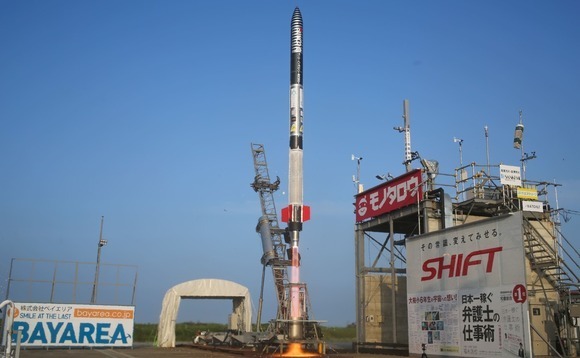
Japan rocket start-up Interstellar gets $29m Series D

Interstellar Technologies, which in 2017 became the first Japanese company to launch a privately developed space rocket and is currently working on solutions for sending small satellites into orbit, has raised JPY 3.8bn (USD 29.6m) in Series D funding.
More than 20 investors participated in the round, including SBI Investment, CyberAgent, and Seven Stars Capital, as well as corporates such as Satudora Holdings, Sanko Industries, Hagiwara Construction, and Kadokawa Corporation. The company closed the first tranche of the Series D on JPY 1.87bn last April and announced a JPY 1bn investment from SBI in December.
According to AVCJ Research's records, Interstellar raised JPY 10.1m from Hokuyo Finance and Hokkaido Venture Capital in 2017. Hokkaido Venture Capital re-upped in a JPY 1.22bn round two years later, joined by Obihiro Shinkin Bank and various individual investors, and then a JPY 1.77bn round – featuring the likes of CyberAgent and Seven Stars – closed in late 2021.
Much of the capital targeting Japan's space technology industry has focused on iSpace, which develops commercial lunar landers and is looking to complete its own lunar missions. The company's JPY 5.1bn Series C closed in mid-2021 with commitments from SBI among others.
Interstellar started out in 1997 as a hobbyist organisation for people interested in small-scale rocket technology capable of launching satellites at low cost. The company was formalised in 2005 – it wasn't established as Interstellar until 2013 – and completed its first rocket engine combustion test in 2008. A development base was built in Hokkaido a year later.
Momo, the company's first rocket capable of suborbital flight, launched in 2017 and reached an altitude of 20 kilometres. Two years later, Momo became the first commercially developed Japanese rocket to reach the Kármán line, recognised as the boundary between the earth's atmosphere and outer space, which is roughly 100km above sea level. Two more successful launches came in 2021.
Interstellar is now developing a new rocket called Zero that is intended to carry microsatellites of up to 100 kilogrammes to altitudes of around 500km. It is targeting a cost per launch below JPY 600m. The Series D proceeds will support these efforts.
The company noted in a statement that the global space technology market is expected to be worth JPY 110trn by 2040, nearly three times its current size. Demand for small-scale satellites is growing significantly, but Japan only sees a handful of launches every year, about 2% of the global total.
Latest News
Asian GPs slow implementation of ESG policies - survey
Asia-based private equity firms are assigning more dedicated resources to environment, social, and governance (ESG) programmes, but policy changes have slowed in the past 12 months, in part due to concerns raised internally and by LPs, according to a...
Singapore fintech start-up LXA gets $10m seed round
New Enterprise Associates (NEA) has led a USD 10m seed round for Singapore’s LXA, a financial technology start-up launched by a former Asia senior executive at The Blackstone Group.
India's InCred announces $60m round, claims unicorn status
Indian non-bank lender InCred Financial Services said it has received INR 5bn (USD 60m) at a valuation of at least USD 1bn from unnamed investors including “a global private equity fund.”
Insight leads $50m round for Australia's Roller
Insight Partners has led a USD 50m round for Australia’s Roller, a venue management software provider specializing in family fun parks.








